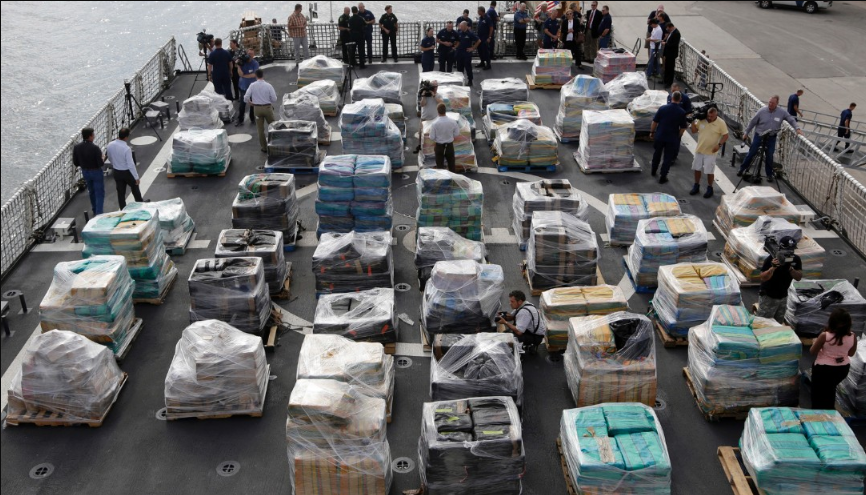
Container shipping companies and international customs authorities met earlier this month to discuss ways to step up the fight against drug trafficking by sea as traffickers continue to exploit points in the ocean liner trade to move increasingly large shipments of illicit narcotics.
The meeting was organised by the World Shipping Council (WSC) and the Container Control Programme (CCP), which is a joint initiative between the UN Office on Drugs and Crime and the World Customs Organisation.
The goal of the meeting was to advance the fight against the illicit drug trade by enhancing relationships and communications between the ocean liner industry and customs officials. Customs authorities from Ecuador, Panama, Belgium, Netherlands, United Kingdom, France, Germany, Italy, Spain, Portugal, Malta, Turkey, India, Australia, New Zealand, Canada and the United States presented their challenges and successes in fighting drug trafficking. WSC member carriers provided insights into the everyday operations of the ocean liner industry and the strategies and procedures in place to prevent crime, as well as opening lines of communication to build closer relationships with customs authorities.
“Narcotics are a scourge for societies across the globe, destroying lives, families and communities. Liner carriers will not tolerate having their services abused by criminals, and WSC is committed to supporting the Customs community with insight into ocean liner industry operations, providing open communications and exchanging information to combat drug traffickers,” said John Butler, President & CEO of World Shipping Council.
Several recurring themes emerged during the meeting, most prevalent of which were the need for greater transparency of information on container shipment data, the need for cross-training efforts between Customs authorities and liner carriers, and the need to identify and remove insider threats.
U.S. officials in 2019 marked one of the largest drug seizures in U.S. history when it busted a plot to smuggle an estimated $1 billion worth of cocaine through the port of Philadelphia in shipping containers on board the MSC Gayane. Law enforcement agents boarded the ship when it arrived at Packer Marine Terminal in Philadelphia and seized about 20 tons of cocaine. Several crew members were subsequently arrested for their role in the plot, apparently using the ship’s crane to load the drugs during high-seas rendezvous with small boats.
According to the UNODC 2021 World Drug Report, around 275 million people worldwide had used drugs in the last year, while over 36 million people suffered from drug use disorders.
“The UNODC and the WCO look forward to working with the WSC and its member shipping lines on training and awareness-raising activities. We need to sensitize each other to understand how we can work together for the benefit of us all, and increase the likelihood of detecting illegal shipments, while at the same time facilitating legal trade,” said Norbert Steilen, WCO CCP Senior Coordinator.
“The team in charge of managing the CCP and all the 123 units created at ports across the world are committed to further developing the dialogue with the shipping industry to tackle the misuse of legitimate commercial transport by criminal organisations”, Ketil Ottersen, UNODC Head of CCP, said.
Copyright Ships & Ports Ltd. Permission to use quotations from this article is granted subject to appropriate credit given to www.shipsandports.com.ng as the source.